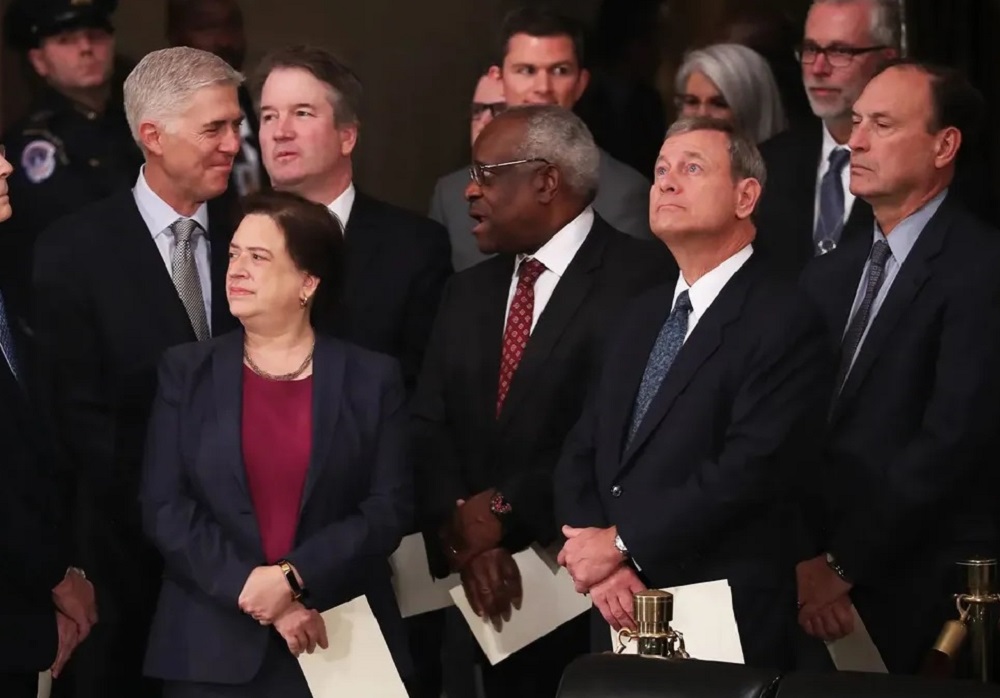In light of allegations about one progressive colleague’s lucrative tenure on the bench, leftist double standards were at the forefront as ethics indignation seemed to be reserved primarily for conservative Supreme Court justices.
A constitutionally faithful Supreme Court has remained one of the strongest defenses against the fall of the American Republic as the coequal branches of the American government, intended as a system of checks and balances, have continuously eroded due to executive fiat, bureaucratic neutering, and judicial activism.
In an effort to advance reforms like term limits, expansion, or, at the most extreme, the outright impeachment of sitting members, Democratic politicians have felt it necessary to attack traditionalists like Justices Clarence Thomas and Samuel Alito. But while partisan attacks have continued on the aforementioned judges, no one has questioned Justice Sonia Sotomayor’s projected growth in net wealth of a hundredfold.
Following a recent article from the Associated Press about how the justice’s staff made arrangements with colleges and libraries to purchase books when she spoke at their locations, Fox News reported that Sotomayor’s finances have benefited significantly in the 14 years since then-President Barack Obama nominated her.
Financial reports prior to her 2009 appointment to the court revealed that the value of her investments, which included two bank accounts, was between $15,001 and $65,000, down from 2007, when it was reported that she had between $50,001 and $115,000 in both accounts.
According to her 2021 and 2022 financial reports, speaking engagements and book deals with Penguin Random House have since left the justice with a net worth that ranges from $1.5 million to $6.6 million.
In her previous position as a federal appeals court judge, Sotomayor earned an annual salary of $180,000 and an additional $25,000 from lecturing at law schools in the New York region, according to information provided by Fox News. She currently earns $285,400 from the Supreme Court.
“Supreme Court staffers have been deeply involved in organizing speaking engagements intended to sell books,” the AP reported. “That is conduct prohibited for members of Congress and the executive branch, who are barred under ethics rules from using government resources, including staff, for personal financial gain.”
The AP highlighted multiple instances of people waiting in line to meet Sotomayor at universities and libraries being obliged to buy one of her books. She is rumored to have made $3.7 million from her book sales since entering the Supreme Court.
Additionally, despite the evident concern, the justice and her colleague Justice Neil Gorsuch neglected to withdraw from cases involving Random House, according to Article III Project founder and president Mike Davis, who spoke to Fox News Digital.
“Justice Sotomayor is a good person who appears to have made a mistake by having her staff sell her books, including what appears as pressure on schools and libraries to buy a minimum number of her books before her speaking engagements,” he said. “She acknowledges she made a mistake by failing to recuse from several cases involving her book publisher. The Supreme Court has adequate mechanism in place to deal with these mistakes, and the Supreme Court has already taken corrective measures.”
Sen. Tom Cotton of Arkansas observed the hush on Sotomayor as corporate media and leftist politicians continued to criticize conservative justices for apparent irregularities.
“The media ignores Justice Sotomayor receiving gifts while attacking Justices Thomas and Alito. Once again, there is a different standard for conservatives,” he tweeted, sharing a snip of a conversation with radio host Hugh Hewitt.
Responding to the concerns posed by the AP report, the court released a statement that said in part, “Judges, including justices, routinely travel and speak to university, college and law school audiences and affiliated individuals and entities. Judicial staff play an important role in assisting on issues of ethics, travel, and security.”
“Chambers staff assist the justices in complying with judicial ethics guidance for such visits, including guidance relating to judges; publications. For example, judicial ethics guidance suggests that a judge may sign copies of his or her work, which may also be available for sale,” the statement noted, “but there should be no requirement or suggestion that attendees are required to purchase books in order to attend.”

